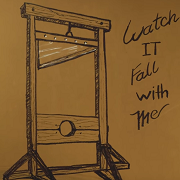|
This thread is for discussing strategies for attaining the political results you want in the context of a democracy, as well as closely related issues. Direct Action Direct action refers to the use of economic or physical power to achieve political goals. Participation in elections or purely verbal interactions with opponents such as negotiation aren't considered direct action. Examples include civil disobedience, sit-ins, strikes, participation in black or grey markets, destruction of property, and physical violence. Different political ideologies disagree about the desirability or effectiveness of non-violent direct action vs. violent direct action. Direct action doesn't necessarily preclude engaging in electoral politics as well, unless the direct actions one takes cause them to become a felon. Revolution vs. Reform Related to the idea of direct action, a revolution is a rapid and fundamental transformation of a society's structures. Since the late 19th century, beginning primarily with Rosa Luxemburg's Social Reform or Revolution, there has been a debate among leftists about whether revolution is preferable to reform - defined as changing a system rather than abolishing and replacing it. Historically, those further left have tended to favor revolution, while those closer to the center have tended to favor reform. Revolutionaries such as Luxemburg argue revolution is the only way to address the underlying problems of capitalism rather than treating the symptoms indefinitely, while reformists argue that reform is more realistic or that its costs are lesser. Voting Voting affects government policy. The effect is increased by greater voter turnout. Demographics that vote at a higher rate, such as the middle class and older people, tend to see their interests considered in the government at a higher rate. We know this is not merely a chicken and egg situation where those who already feel better treated by the government are more likely to have the motive to play ball with them, because examples in recent history show that politicians are hesitant to undermine policies favored by high-turnout demographics, even when those policies also affect lower-turnout demographics. Though voting affects policy, the political preferences of the economically advantaged have a greater effect on policy independent of their voting rate in the United States, and this may be caused in part by private campaign finance, which some including myself believe is a form of corruption. A protest vote is a vote cast to demonstrate dissatisfaction with the choice of candidates. It can include leaving ballot choices blank, intentionally making the ballot uncountable, and joke votes such as Mickey Mouse. It is also generally applied to voting for a candidate who can't feasibly win, including third-party candidates in first-past-the-post systems, though some object to this on the grounds that it is qualitatively different from other forms of protest vote in that they are voting for a real candidate and desire them to win. The distinction may ultimately be philosophical, as it's extremely rare for dominant parties to be replaced in the modern era, with coalition changes instead bringing about political realignment resulting in a new party system. Abstention refers to not voting at all. Some abstain from voting for reasons of personal honor or morality, feeling that participation in an evil system makes them complicit. Anarchists sometimes abstain from voting for candidates, though not necessarily initiatives, due to a belief that democracy should be direct rather than representative. Protest voting communicates one's reason for not voting more effectively than total abstention. Party Politics As alluded to earlier, in a first-past-the-post system the emergence of two major parties is inevitable, according to Duverger's law, and this leads to party politics. Because there are generally more than two ideologies or interest groups in a single state, parties thus become coalitions representing multiple political philosophies and demographics. These groups naturally vie for power within the party just as the party does within the state. This is most visible in primary elections, where candidates represent different parts of the coalition to different degrees. A major cause of protest voting and abstention is when a group of voters feels that they aren't well-represented by a party's platform or nominees. This has political benefits and drawbacks for the group in question. In the vast majority of cases, one of the major parties is closer to the ideology of an unsatisfied group than another, so the group risks damage to their political interests if the more favorable candidate loses. On the other hand, a show of numbers and discipline might cause future candidates to incorporate more of the the group's views, and worsening a nominee's general election performance can act as a direct rebuttal to arguments during a primary that one candidate is more electable. Both supporters and protestors of nominees are aware of this dynamic and much of the rhetoric around whether or not one should protest grows out of it. For example, supporters tend to emphasize the damage a nominee's loss will cause and anything the nominee has said or done that is in line with the views of the protesters, while protesters emphasize the ways in which the nominee doesn't differ enough from their opponent on issues the protestors care about. Other parties are aware too, and can attempt to intensify dissent using wedge issues, which in turn creates another line of argument between supporters and protesters. Note: Though doing so is common on these forums, please refrain from using the word "electoralism" incorrectly, unless you explain that you are doing so. This is pursuant to rule I.A.4. The term you're looking for is probably "electoral politics." Koos Group fucked around with this message at 19:48 on Feb 13, 2024 |
|
|
|

|
| # ? Apr 27, 2024 19:18 |
|
going to continue doing direct action of feeding the hungry in my area and helping them get geds, and protest voting against genociders and rapists (USER WAS PUT ON PROBATION FOR THIS POST)
|
|
|
|
Voting is a subset of direct action. Trying to steer the ship of state one of two directions (and at least in the US that's all voting is) isn't useless but generally speaking haranguing people about it doesn't do much. I help people get to the polls sometimes, sometimes I stand a legally mandated distance away from the polls with a sign and some pamphlets. I think it's worth doing.
|
|
|
|
Relevant Tangent posted:Voting is a subset of direct action. Trying to steer the ship of state one of two directions (and at least in the US that's all voting is) isn't useless but generally speaking haranguing people about it doesn't do much. I help people get to the polls sometimes, sometimes I stand a legally mandated distance away from the polls with a sign and some pamphlets. I think it's worth doing. Voting is not a subset of direct action. Direct action doesn't mean useful, or proactive, or worthwhile, or anything like that. It defines a specific type of political action which does not include voting.
|
|
|
|
The pressures that contribute to the differentiation of the parties are less based on an actual bipolar demographic in this country but the fact that a credible ideological alternative, be it in a socialist state or a robust socialist party, exists to force the supposedly more "capitalist-adverse" party from not just conceding to capital. Capital inherently runs conservative - things such as a war state, a robust prison-industrial complex, a stratification of society that promotes anxiety all benefit capital, with the only drawback being a curbing of appeal to minority communities. The current "two-party" system benefits from the illusion that capital is having an internal conflict over whether to absolutely marginalize or include minorities, when it really promotes a slim margin of minorities to create the idea of mass progress that simply isn't there. Olufemi Taiwo's work shows good examples of this. Arguments that capital is not monolithic should be summarily dismissed - the rich have class solidarity, making their public differences slight. To quote renowned scholar George Carlin, "It's a big club, and you're not in it!" with my only added exception being that it's a club that constantly looks to downsize. Even as Barack Obama diversified the elite tier of American rulers, black people collectively lost wealth. This is important to understand why the "sizable policy" difference parties have ultimately amount to little. Even when communism's appeal forced America out of their Gilded Age conservatism, there was still disappointment with how little difference there was between the parties. It's clear a credible alternative must be offered against, to paraphrase Julius Nyere, a one-party that in its typical extravagance has two. The Democratic Party, for example, until recently had used for a half-century superdelegates to prevent candidates who were not establishment from securing the nomination. These superdelegates still have power now, though it can only be invoked after the first ballot. In 2024, the president, Joe Biden, used his power to move the start of the primaries to South Carolina, a state that favored him and other conservative establishment candidates despite the state not going Democrat since 1976. The party is institutionally resistant to change and as such, cannot be considered a true vehicle for grassroots operations. It is specifically designed not to be that. The only true strategy would be through a party that favors direct action. This has precedent in other regions and is not the "revolution or bust" strategy that many of its detractors insist upon. While the Nordic Model is far from perfect, the alternative is a party that continues to resist reform and actively wages war on the very "third parties" that could pressure it into change. Even if one is an incrementalist and still believes the Democratic Party can be reformed into a party of change, they should entertain third party voting as a pressure gauge. Not doing so effectively means negotiating intentionally without leverage. People who continue to advocate for party solidarity at any cost should be viewed the same way as a publication expressing concerns about how Hollywood strikes may delay the release of precious blockbusters, as the electoral equivalent of scabs. Their criticisms should be viewed as feints and summarily ignored. There is no law saying that people can't vote for third parties, so nothing really stops them from being the first past the vote other than public perception of them as unfeasible. There is, however, no guarantee the establishment liberal candidate will win either. Odds are, you will likely vote for a loser either way, so why vote for the loser who makes you feel nauseous after voting for them? Individual votes don't matter in our system. They should be viewed as speech rather than power. Power comes from labor and the continued operations of governance/commerce/etc. Thanks for having me, Go Jayhawks.
|
|
|
|
I'm def on the "implement alternatives to FPTP" train myself: luckily the state I currently live in (Oregon) has a ballot measure this year about implementing IRV. I've seen people in the voting alternative field criticize IRV, but with a side of "though at least it's still better than FPTP"; looking through things I feel like a fairly ideal FPTP alternative would be Combined Approval Voting, strikes a balance of not being complicated while having more expressiveness than plain approval voting.
|
|
|
|
Personally, I feel that a large part of this conversation is driven by overly focusing on presidential elections specifically, which I suspect is largely driven by the overwhelming media focus on presidential elections, as well as a tendency for people to imagine that they're more politically involved than they actually are. Practically speaking, a nationwide one-on-one election leaves almost no room for expressing particular issue preferences. But this isn't necessarily a problem, because major political shifts rarely start at the presidential level. If a large amount of voters all over the country strongly want something to happen (not just enough to say they want it in polls, but enough to actually factor it into their voting decisions), then you'll see large numbers of candidates who support that policy winning office at the lower levels of government. Local government, then state government, then the House, and then finally the Senate. A presidential candidate can get a pretty good sense of how widespread support is for an issue by looking at how voters all over the country are voting in other, non-presidential elections. Besides, in many cases, control of state governments and Congress is more important than the presidency, especially when it comes to domestic politics. People act like their only chance to impact anything is deciding whether or not to vote in presidential elections, and that's so profoundly wrong that I can only take it as un-serious. Shifting the national perspective on an issue takes a lot more work than just leaving the "president" section blank on your November ballot.
|
|
|
|
Main Paineframe posted:Personally, I feel that a large part of this conversation is driven by overly focusing on presidential elections specifically, which I suspect is largely driven by the overwhelming media focus on presidential elections, as well as a tendency for people to imagine that they're more politically involved than they actually are. You're equivocating here (and you basically admit it). Given that the president has the capacity to (almost) unilaterally set foreign policy, that local/state governments have no say at all, and that the senate has a very limited say only in some specific circumstances, it follows that the mechanisms you are proposing for effecting bottom-up change only apply to domestic policy. If those mechanisms are only operative with respect to domestic policy, then it is in fact the case that the only (significant) chance to impact foreign policy is a vote in the presidential election. Ergo, if one wants to effect change in foreign policy, withholding one's vote or voting for some alternative in the presidential election is - and this basically follows from what you've said - the only way to exert any kind of leverage over foreign policy. Edit: Just to be perfectly clear, the equivocation consists in making a point in the first two paragraphs which applies only to domestic policy, then performing a sleight-of-hand in the last paragraph where you almost acknowledge that your argument doesn't apply to foreign policy, before finally using a point that only applies to domestic policy ("People act like their only chance to impact anything is deciding whether or not to vote in presidential elections, and that's so profoundly wrong") to condemn anyone who withholds their vote in a presidential election. Gnumonic fucked around with this message at 23:37 on Feb 13, 2024 |
|
|
|
Gnumonic posted:You're equivocating here (and you basically admit it). But what if you have other policy goals? How does withholding your vote/voting third party help with those? Like, I'm not a single issue voter. I care about multiple things. If one candidate is the antithesis to all of my goals, why would I want to withhold my vote over one issue while endangering my other issues (that are currently being addressed satisfactorily)? EDIT: One more question. You say that threatening to withhold your vote/vote third party exerts leverage. How? It's not like a union negotiating with their company. The threat of a strike has immediate material consequences for both parties. The company could lose profits and the workers could lose wages. There's a motivation for both parties to quickly come to an agreement. The consequence for the Democrats is that they'd lose an election and the voters would live under the effects of a Republican president that could extend for decades. How is that balanced? The Democrats would just go home. The DC consultants and campaign managers would still have their jobs. Meanwhile, everyone in the country and our allies abroad would be turbofucked. And what if the Democrats win? What leverage would we have in the next election? It'd be clear that they don't need us. And people who might sympathize with us and form coalitions with us could tell us to go to hell. I think that "not voting/voting third party as leverage" is a faulty premise. To change things on a national scale you need national attention and that takes effort, time, devotion, and it doesn't happen overnight. volts5000 fucked around with this message at 00:22 on Feb 14, 2024 |
|
|
|
Gnumonic posted:You're equivocating here (and you basically admit it). I think you've completely missed the point of what I was saying. This is because you're mixing up two fundamentally separate questions: "who has the power to do X under the federal government?" and "how do we, the voters, express our political preferences and desires in a way noticeable and compelling to the people who have the power to do X?". This thread is about the latter, not the former. The Senate has a fair amount of leverage over the presidency when it comes to foreign policy matters, but the exact amount of power they have here isn't really important. What is important is that if American voters vote in 60+ senators who support policy X, even in this age of polarization, then it is very clear that a substantial chunk of the voting population across the entire country wants policy X. It's even helpfully broken down by state so the president can see if any particularly important swing states care about policy X. Even if the Senate doesn't have the power to directly impose policy X or otherwise force it on the president, such a clear and consistent demonstration of political support for X will send a message that a president will be hard-pressed to ignore. The upshot of this, of course, is that there are a lot more Congress members who go up for election in election years, and the fact that each individual member of Congress has a far smaller electorate (compared to the presidency, anyway) means that it's easier for outsider challengers to rise up and for a diverse set of opinions to have real shots at the office. This makes it a lot easier to tell what the people want, as it's possible to see how different issues are faring across hundreds of elections across the entire country, as opposed to one single nationwide election where it's impossible to tell which particular issues are motivating people's voting decisions. It's much like how the rise of Donald Trump was a direct result of several election cycles worth of far-right crazies winning the full support of the base and going on to topple a number of established Republicans in the House and even in the Senate, demonstrating that a substantial chunk of the voting population was deeply hungry for the style of politics that eventually became MAGA. The media usually treats it as though Trump was the one who changed the Republican Party, but it's really just the opposite - the Republican voters changed, and that's what provided the opening for Trump to get in there in the first place. While Trump did have some unique qualities of his own that allowed him to expand his appeal beyond the arch-conservatives, his core MAGA base were the same people who'd spent the last six-plus years primarying moderate Republican House and Senate members and replacing them with ridiculously fringe candidates, and his rise should be regarded as just another step on the path that the Tea Partiers had been blazing since the day Obama was elected.
|
|
|
|
volts5000 posted:But what if you have other policy goals? How does withholding your vote/voting third party help with those? Like, I'm not a single issue voter. I care about multiple things. If one candidate is the antithesis to all of my goals, why would I want to withhold my vote over one issue while endangering my other issues (that are currently being addressed satisfactorily)? That's it though isn't it. It's not being addressed satisfactorily for some people. With the perverse feedback loop between capital/the market and I don't even think people should have to provide an answer or solution, when confronted with this failed trajectory. It's good to be able to recognize the failure. Especially if you are still interested in direct action one way or another. So when forced to come up with an alternative to voting (whether or not one goes to vote against the loving republicans once again), I just think of maybe spreading (passing down) a spirit of community and resistance and actual smaller scale humanity. And terrible terrible burden and responsibility. This mostly in service to say holy poo poo vote scolding doesn't work at all. Having some empathy for people (so thoroughly captured) is part of building whatever will crawl out from under this.
|
|
|
|
I have something I am morally undecided about, and I hope it is an appropriate subject for this thread. I, and everyone else in the conversation, were understandably probated for talking about it in the USCE thread, and the conversation was pretty heated (I made a really dumb post and deserved my own probation, to be sure). I hope bringing up the background of that conversation isn't in some way improper, but I think it's helpful to explain where I'm coming from. I believe that Joe Biden's actions are bad. Really morally, horrifyingly bad, with regards to Gaza. I think there is a truly horrifying genocide happening right now, and one of the few people in the world who could materially affect it is not doing everything he can to do so. I am explaining this to emphasize that I am not giving Biden a pass on this one. "Actually he's not that bad" would be a solution to my dilemma, but it is not one that I personally can take. I'm not particularly interested in debating this point here- it is my opinion, and I'm outlining it just to explain my dilemma. I believe that Trump would be worse, both on Gaza, and for a myriad other reasons. The opinion was presented in USCE that Trump could not be worse on Gaza, as if Biden was maximally bad. I do not agree with that. I believe Trump can and will make the situation worse. This can and has been debated, but I would like to again present this as my opinion for the following scenario. If we accept the two above points, how am I not obliged to vote for someone who is, politically, to me, truly reprehensible? Logically I cannot see a way around it. I would like to see a way around it. I would feel better about myself if I did not vote for Biden. But I do not understand how There are other things I can and do do to affect the world. I acknowledge that my vote is probably not even the most important among those things. But in November I am going to have to either stay home, or go vote. There are no other options. This is context for the following exchange I would like to revisit: Eiba posted:The most comfortable position is actually that things are the worst they can be so you don't need to worry about your vote/lack of vote making things worse. That's way more comforting than the idea that you might be morally obligated to support a genocider to prevent a worse genocider from gaining power. Gripweed posted:I'm sorry, but this is nuts. You get that this is nuts, right? You are not morally obligated to vote for a genocidaire. You are in fact morally obligated to not do that. You do not pick between the lesser of two genocides, you refuse the question. The inaction of not endorsing genocide is always morally superior to the action of endorsing a genocide. If genocide is inevitable then at the very least do not stain your own soul by giving it your stamp of approval. I do not see how this is "nuts". I would really like it to be explained more clearly what is absurd about my logic. I don't know what "refusing the question" looks like. Not voting increases the likelihood that the thing I'm horrified by is going to be worse, because I would vote for Biden, and therefore staying home makes a Trump victory more likely. I want to emphasize again that I'm not interested in debating the premise. Maybe Biden isn't that bad, maybe Trump wouldn't be worse. Those are just factual questions. If we assume that Biden is totally repugnant, and Trump is worse, what do I do? I understand a lot of people think the answer is obviously to vote for Biden, but I do not want to, and some people were very stridently arguing that I do not have to vote for Biden, and I would like to hear more from that perspective, which is very appealing to me, even if I cannot currently logically accept it. I would also add that, while I am carefully making this about my own opinion to focus the issue, I believe this issue is at the core of a lot of the heated electoral politics discussions I have read on these forums, and I hope clearly laying out the logic of this dilemma is helpful for focusing other people's opinions as well.
|
|
|
|
|
BRJurgis posted:That's it though isn't it. This is what needs to be done. 100%. No doubt at all. Now, what political environment is this outreach and resistance being done in? Is the environment neutral (as in government officials are not actively helping you but passively allowing you to do it) or is the environment hostile (as in government agencies see you as a threat and try to stop you through law enforcement). That’s what voting can change. Political movements of the past didn’t have government actors to actively boost them. They needed actors that’ll, at the very least, allow them to affect change on their own. It would be nice if we could always vote for candidates that could boost the outreach you describe, but we could at least have a candidate that will stay out of your way.
|
|
|
|
First of all, to be explicitly clear, this is a good thoughtful post and I read every single word. I just wanted to condense it down for forum space. But, to address your overall concerns, I would like to tell you my approach is to politics my entire adult life (of which I’m now 36). I look at voting in the presidential election as a relative position. IMO, every president of the US is a terrible person. But I think it’s impossible to be a moral person and a president because you have to balance the desires and needs of millions of people at any given moment. And, unfortunately, those desires and needs collide way too often So, I’ve taken the approach of looking at presidential elections as “if I was the deciding vote, could I live with my choice?” while acknowledging that only the 2 main parties could realistically win. And this is coming from a very blue state (MN). So, for my concrete examples of presidential elections, I have done the following:
I don’t know if this helps, but it’s my thought process Kalit fucked around with this message at 01:58 on Feb 14, 2024 |
|
|
|
Show up for your local and (if convenient) state Democratic conventions, people. Or Republican, I suppose, for both Republicans reading this post. It's how the nefarious shadowy DNC conspiracy gets elected, it's how election rules get set, it's how you signal boost issues that are important to you, and if Joe Biden dies in a car accident fleeing from the cops in his Trans Am the national convention is fairly likely to be how another nominee is selected. I'm not going to bother putting up a Whole Thread this year because I frankly don't think it's worth the effort based on 2020 uptake (and reduced brokered convention odds), but in many states we're getting to the point where you need to do your easy paperwork. Or past that point.
|
|
|
|
I'll probably heave a heavy sigh and do a 2028 refresher on my effortpost but I don't have to start on that until December 2024
|
|
|
|
The truth of the matter is, your vote will matter but it will matter less and less the broader the responsibility of the representative is. Though I find the Democratic Party deplorable, I still feel somewhat comfortable voting straight ticket for them on small positions such as city council, school board, etc. because they don't have much sway over things that are very fait accompli to me (foreign policy, national monetary policy, etc.) but can make a credible difference on conservation efforts, academic standards, etc., all of which is very important to livability for local marginalized groups and the like. There also, sadly, is rarely an "alternative" to the major party in these groups, and quite a few of them are nonpartisan and therefore party affiliation doesn't matter anyway. I still believe in voting so that people have agency on those matters. But when it comes to broad, national-based politics, your vote is a shot in the dark anyway. It has little power on its own, and even if you're canvassing, it probably won't move enough populace to matter. I've largely voted blue straight ticket the past two elections on everything except the presidency only to watch those candidates on a senate level fail not because of their poor messaging on healthcare (though that probably didn't help), but something dumb like, "Had an affair." Part of me despairs at how little my vote matters, but it's also liberating - there's no reason to think my vote will be the one that decides things. I can recognize that it's simply speech, that I vote not to win or even effect policy but because I'm a goblin who likes researching candidates for fun. There's no guarantee of what's a swing state. My current state, North Carolina, has commonly been described as a swing state because of Obama victories here, but that seems a collapsed coalition and the state has largely been red since, both because of gerrymandering but also a general disinterest in the Democratic Party at large except as a stopgap against, like, the far-right of the GOP. (Regular GOP ghouls are apparently fine though.) One of my previous states, Indiana, was also described as a swing state, except it contributed Pence to Trump's campaign and is unlikely to turn blue this election or probably many subsequent ones. Florida's a swing state until it's not. It's a lot of calculus, to me, that ultimately burns out and retroactively becomes insolvent. I bring these up to say, as badly as it may initially feel, it's unlikely your vote will mean anything. But! That means your vote will never give the election to Trump nor would it be needed by Biden to maintain power. That will be decided by people with the dumbest ideas ever, who want free weed but also think we need to re-invade Japan to get our jobs back, people who can't be reasoned with and very much will swing the election over false information. People who think Obama is a Muslim and that was a good thing, that kind of thing. So vote for who you want! If you really don't feel great voting for Biden, he probably doesn't need your vote! He didn't need mine to win. He's expressly said, multiple times, he doesn't want the votes of people who disagree with his border policy or think he's a rapist or etc. You're under no obligation to hand your vote to a guy who doesn't even want it. I don't know if that's helpful, but hopefully it's some food for thought.
|
|
|
|
Probably Magic posted:The truth of the matter is, your vote will matter but it will matter less and less the broader the responsibility of the representative is. Though I find the Democratic Party deplorable, I still feel somewhat comfortable voting straight ticket for them on small positions such as city council, school board, etc. because they don't have much sway over things that are very fait accompli to me (foreign policy, national monetary policy, etc.) but can make a credible difference on conservation efforts, academic standards, etc., all of which is very important to livability for local marginalized groups and the like. There also, sadly, is rarely an "alternative" to the major party in these groups, and quite a few of them are nonpartisan and therefore party affiliation doesn't matter anyway. I still believe in voting so that people have agency on those matters. That's kinda why I can't ever subscribe to that attitude. "Don't worry, I live in a solid blue state. It's not like my vote counts." Goes from blue to red. "Well, I live in a red state now. My vote's gerrymandered now, so it really doesn't count." Everything's fine until it's not. The people you mention always vote and they don't always outnumber me and people who share my values. I live in North Carolina as well. The republican candidate for governor is a bigoted, antisemitic pastor who will push to outlaw abortion and reform education so it doesn't include history or science. If too many people share your view, then my sons may have to reevaluate their college careers. I'm not ready to do that.
|
|
|
|
edit: Misclick
|
|
|
|
|
There is no Republican governor candidate yet as the primary is ongoing, but I assume you mean the frontrunner. As there is no Green Party candidate at all due to only person running and that primary being canceled, I'll likely vote for whoever is the Democrat. It's unlikely North Carolina will go for a culture warrior conservative for governor as those have not fared well in recent years, with the only Republican who's taken the governorship at the time doing so as a pro-business moderate whose spending scandals cost him his base and made him panic-push anti-trans laws that lost him the state even more. But again, this all goes into the concept of "enough people," which I personally think is a bit of megalomania and misplaced sense of responsibility. If a solid blue states goes to the Republicans, is that the voters' fault or the party's fault for not appealing to voters? At a certain point, one should view themselves as separate from the party or risk being incapable of negotiating power with that party. I would point to the fact that the libertarian party routinely outperforms the Green Party and it was in fact a libertarian candidate who last made an impact on presidential elections with Perot, and yet, there is constant "concern" expressed about the Green Party costing the Democrats victory. So are otherwise willing Democrats who "protest vote" the cause for losses, or is it more a failure to garner independent moderates whose concerns aren't the same concerns as the average Democrat? The math does not actually back up the constant left-punching the Democratic Party engages in. It looks like what it is - a prebaked excuse.
|
|
|
|
Probably Magic posted:I bring these up to say, as badly as it may initially feel, it's unlikely your vote will mean anything. But! That means your vote will never give the election to Trump nor would it be needed by Biden to maintain power. That will be decided by people with the dumbest ideas ever, who want free weed but also think we need to re-invade Japan to get our jobs back, people who can't be reasoned with and very much will swing the election over false information. People who think Obama is a Muslim and that was a good thing, that kind of thing. So vote for who you want! If you really don't feel great voting for Biden, he probably doesn't need your vote! He didn't need mine to win. He's expressly said, multiple times, he doesn't want the votes of people who disagree with his border policy or think he's a rapist or etc. You're under no obligation to hand your vote to a guy who doesn't even want it. I don't know if that's helpful, but hopefully it's some food for thought. Just today got a moderate advocating for abandoning NATO countries not meting treaty funding guidelines to Russia and Donald the Doving. From a person who swings from anticapitlist to moderate. Politics Tiktoc has made some people proudly and confidently ignorant and misinformed. E: I never ran into a live moderate up in MD but NC just seems to have something in the water.
|
|
|
|
Probably Magic posted:I would point to the fact that the libertarian party routinely outperforms the Green Party and it was in fact a libertarian candidate who last made an impact on presidential elections with Perot, and yet, there is constant "concern" expressed about the Green Party costing the Democrats victory Just to point this out, Perot was not a (large L) Libertarian candidate nor did he have (small L) libertarian platform. He was a centrist populist big on the drug war, economic interventionism, and deficit hawk stuff.
|
|
|
Kalit posted:
Except while I was pleasantly surprised by Biden, and gave him a lot of credit for pulling out of Afghanistan even though he hosed it up, I think what's going on in Gaza is a horrific crime against humanity the likes of which I have never seen in my conscious life and merely 'disapproving' of excess violence when stronger tools are available is tantamount to complicity. Whether he's making a (quite possibly rational) political calculation, or acting on his sincere beliefs, his actions are repugnant to me. But that's just my opinion, and not the point I wanted to debate. Accepting that I am not okay with Biden at all anymore- that he has crossed a moral line with me personally- I still can't justify not voting for him based on the belief that Trump would clearly be worse. Probably Magic posted:I bring these up to say, as badly as it may initially feel, it's unlikely your vote will mean anything. But! That means your vote will never give the election to Trump nor would it be needed by Biden to maintain power. That will be decided by people with the dumbest ideas ever, who want free weed but also think we need to re-invade Japan to get our jobs back, people who can't be reasoned with and very much will swing the election over false information. People who think Obama is a Muslim and that was a good thing, that kind of thing. So vote for who you want! If you really don't feel great voting for Biden, he probably doesn't need your vote! He didn't need mine to win. He's expressly said, multiple times, he doesn't want the votes of people who disagree with his border policy or think he's a rapist or etc. You're under no obligation to hand your vote to a guy who doesn't even want it. I don't know if that's helpful, but hopefully it's some food for thought. It may be that I'm thinking about it way more than the masses who will eventually decide the election, and even "people like me" are a vanishingly small irrelevant portion of the electorate. In fact that's objectively true. But if everyone acted on that knowledge then things would get even stupider. So I'm going to do my part and vote (or not vote) my conviction in a way that would be sustainable if a large number of people made the same choice. I'm open to strategically voting- that is, voting for a third party or not voting to "send a message" but I am aware that if I do so in a close election I am actively helping the candidate I like less. In this case I hate both candidates so much that the candidate I like less is really bad to me. This is the core of my dilemma. This is only tangentially related, but I feel I should add: In 2016 when the side I wanted to move closer to my position lost, they did not in fact seem to consider that catering to my preferences would get them more votes. If anything people talked about becoming more like their opponents and less like I would like them to be. I do not think causing a party to lose an election by staying home is an effective way to influence their positions. I did vote for Clinton in 2016 myself, but my conviction at that time was that Trump was historically terrible and dangerous. I feel history has vindicated that decision- contributing to Clinton's defeat would not have helped advance my beliefs, and Trump was historically terrible and damaging to my country. I feel like this is a similar situation, but Biden is (in my opinion) more actively responsible for things I am horrified by than Clinton was. I feel I have to vote for Biden for the same reasons, but I really do not want to.
|
|
|
|
|
From the introduction of Moral Man and Immoral Society : “Individual men may be moral in the sense that they are able to consider interests other than their own in determining problems of conduct, and are capable, on occasion, of preferring the advantages of others to their own. They are endowed by nature with a measure of sympathy and consideration for their kind, the breadth of which may be extended by an astute social pedagogy. Their rational faculty prompts them to a sense of justice which educational discipline may refine and purge of egoistic elements until they are able to view a social situation, in which their own interests are involved, with a fair measure of objectivity. But all these achievements are more difficult, if not impossible, for human societies and social groups. In every human group there is less reason to guide and to check impulse, less capacity for self-transcendence, less ability to comprehend the needs of others and therefore more unrestrained egoism than the individuals, who compose the group, reveal in their personal relationships. The inferiority of the morality of groups to that of individuals is due in part to the difficulty of establishing a rational social force which is powerful enough to cope with the natural impulses by which society achieves its cohesion; but in part it is merely the revelation of a collective egoism, compounded of the egoistic impulses of individuals, which achieve a more vivid expression and a more cumulative effect when they are united in a common impulse than when they express themselves separately and discreetly.” When we look at Presidents it has to be remembered that they (in addition to being just a person) are also the symbol for the group. Groups are always less moral than individuals. So Presidents are always terrible as they are understood to be an individual who is the representation of and who holds responsibility for the collective actions of the country. There isn’t a way to not have blood on one’s hands as a leader at a nation state level. The exercise of power harms others even if it is non violent and there isn’t really clear line between a nonviolent exercise of power and a violent one. “Once we admit the factor of coercion as ethically justified, though we concede that it is always morally dangerous, we cannot draw any absolute line of demarcation between violent and nonviolent coercion. We may argue that the immediate consequences of violence are such that they frustrate the ultimate purpose by which it is justified. If that is true, it is certainly not self-evident; and violence can therefore not be ruled out on a priori grounds. It is all the more difficult to do this if we consider that the immediate consequences of violence cannot be differentiated as sharply from those of non-violence, as is sometimes supposed. The difference between them is not an absolute one, even though there may be important distinctions, which must be carefully weighed. Gandhi's boycott of British cotton results in the undernourishment of children in Manchester, and the blockade of the Allies in war-time caused the death of German children. It is impossible to coerce a group without damaging both life and property and without imperiling the interests of the innocent with those of the guilty. Those are factors which are involved in the intricacies of group relations; and they make it impossible to transfer an ethic of personal relations uncritically to the field of inter- group relations.” And there is what’s happening the “transfer an ethic of personal relations uncritically to the field of intergroup relations” when you ask your question Eiba.
|
|
|
|
So... "go ahead and vote for Biden"? Is that what you're saying? That is my current position. I was mainly curious to hear from people who thought it was not just reasonable but a moral imperative to not vote for him. And for the record, I think the issue (for me) is that I believe he is contributing to a uniquely horrific crime against humanity. The violence inherent in any position of power is not what's got me bothered in this case. I can rationalize that away. If most people in a similar situation to me are okay supporting Biden because he's "not that bad" then, well, that's fair. But it's not the situation I am in. This might ultimately be about how I see the morality/culpability of what's going on in Gaza, which would put it outside the scope of this thread. I would accept that if it were the case.
|
|
|
|
|
Probably Magic posted:The truth of the matter is, your vote will matter but it will matter less and less the broader the responsibility of the representative is. Though I find the Democratic Party deplorable, I still feel somewhat comfortable voting straight ticket for them on small positions such as city council, school board, etc. because they don't have much sway over things that are very fait accompli to me (foreign policy, national monetary policy, etc.) but can make a credible difference on conservation efforts, academic standards, etc., all of which is very important to livability for local marginalized groups and the like. There also, sadly, is rarely an "alternative" to the major party in these groups, and quite a few of them are nonpartisan and therefore party affiliation doesn't matter anyway. I still believe in voting so that people have agency on those matters. The worst part is that even locally your vote may not matter at all. It is depressingly common here for the state Democratic Party to refuse to even put forward candidates for local elections, meaning anyone but the GOP candidate has to effectively run as a self-financed independent. Hell, this year the state party didn't even bother to hold its (proudly first in the nation) caucuses, but instead wants mail-in votes to be announced in May.
|
|
|
|
Eiba posted:So... "go ahead and vote for Biden"? Is that what you're saying? That is my current position. I was mainly curious to hear from people who thought it was not just reasonable but a moral imperative to not vote for him. I’m not saying to either way. I’m saying consider the group dynamics. Also consider the arguments in light of different group and how each group benefits from you listening to and acting on their argument. Which groups benefit from the “moral imperative to not vote”? What happens historically when voting percentages drop significantly in bourgeoisie republics?
|
|
|
|
Eiba posted:So... "go ahead and vote for Biden"? Is that what you're saying? That is my current position. I was mainly curious to hear from people who thought it was not just reasonable but a moral imperative to not vote for him. Do you see a difference between fully supporting someone and casting a vote for said person? IMO, it seems like that is what you are struggling with. For me, that answer is clear. A vote is not an endorsement of all, or maybe even most, of said person's stances (I.E. back to my point about relativeness). But that's not the case for others. And I think you need to decide where that line is. Kalit fucked around with this message at 05:36 on Feb 14, 2024 |
|
|
|
Kalit posted:Do you see a difference between fully supporting someone and casting a vote for said person? IMO, it seems like that is what you are struggling with. Note that once arguments in this thread are made, they can't be made again without elaboration or direct relevance. So congratulations if you get to be the person to make a simple one.
|
|
|
|
I'll vote for whatever loving moron runs as a Democrat for Congress in my district but for the second presidential election in row, gently caress you Joe Biden I will not vote for you (USER WAS PUT ON PROBATION FOR THIS POST)
|
|
|
|
Kalit posted:Do you see a difference between fully supporting someone and casting a vote for said person? IMO, it seems like that is what you are struggling with. Does the Party you are voting for draw a distinction between a vote and an endorsement? If you are voting for the party is there any impetus for that party to change any of the behaviours or policies, or is voting for them giving the party the go ahead to continue to behave in ways you find personally abhorrent? If there is no point at which you withdraw your vote, why would the party you vote for even know it needs to change, let alone be motivated to?
|
|
|
|
hooman posted:Does the Party you are voting for draw a distinction between a vote and an endorsement? If you are voting for the party is there any impetus for that party to change any of the behaviours or policies, or is voting for them giving the party the go ahead to continue to behave in ways you find personally abhorrent? If Biden ends up getting a lower turnout than 2020, especially to the point of losing, I can guarantee the takeaway won’t be “we need a candidate that’s further left”. It’s going to be “we need someone who’s more centrist to reflect the values of more Americans”. Also, for your last question, it’s already answered in one of my previous posts ITT. I haven’t voted for the Democratic nominee in every presidential election. Kalit fucked around with this message at 14:04 on Feb 14, 2024 |
|
|
|
Kalit posted:If Biden ends up getting a lower turnout than 2020, especially to the point of losing, I can guarantee the takeaway won’t be “we need a candidate that’s further left”. It’s going to be “we need someone who’s more centrist to reflect the values of more Americans”. It's interesting that you use American Presidential Politics to attempt to deflect from the fact your answer to my question is "Yes, you can leverage change by withdrawing your vote." EDIT: Kalit posted:Also, for your last question, it’s already answered in one of my previous posts ITT. I haven’t voted for the Democratic nominee in every presidential election. I don't think you have actually answered this question. Whether or not you have voted personally, and your personal view on your morality of voting in an immediate sense is not my question which regards the broader party and policy ramifications of the choice to either give or withhold your vote. hooman fucked around with this message at 14:14 on Feb 14, 2024 |
|
|
|
Kalit posted:If Biden ends up getting a lower turnout than 2020, especially to the point of losing, I can guarantee the takeaway won’t be “we need a candidate that’s further left”. It’s going to be “we need someone who’s more centrist to reflect the values of more Americans”. Biden could get 1 vote or 100 million votes and the takeaway will be "drat we need someone more centrist" because that's always the takeaway.
|
|
|
|
I voted Hillary in 2016 despite knowing she was terrible because I at least believed she'd fuckin win and thought it'd be funny if she ran up the vote (and gently caress Trump) but she couldn't even manage to win a loving thing so man what a waste of a vote. (Also because the green party candidate was blaming WiFI for cancer lmfao, even our worthless third party candidates are loving garbage) I didn't vote for Biden in 2020 and instead threw it at a third party that my state didn't even bother to count because Biden loving sucks and the four years that has followed has only made me glad that I am not responsible for this fuckwad. If not voting for Biden results in a second Trump term, then that's not my fault and gently caress you. Squall fucked around with this message at 14:25 on Feb 14, 2024 |
|
|
|
Squall posted:I didn't vote for Biden in 2020 and instead threw it at a third party that my state didn't even bother to count because Biden loving sucks and the four years that has followed has only made me glad that I am not responsible for this fuckwad. If not voting for Biden results in a second Trump term, then that's not my fault and gently caress you. The logic of responsibility here isn't coherent. You say if you had chosen to vote for Biden, you would've been morally responsible for his election victory and what he did. That makes sense, because by choosing to vote for him, you made his victory more likely than if you had made a different choice. By the same logic, if you choose not to vote for him in 2024, you're morally responsible for the outcome of that choice, compared to others you could have made - if Trump's elected, and you could have stopped it by voting for him against him, then of course it's your "fault." We're responsible for the events that our actions make more or less likely, whether that action is voting or declining to vote. If helping Biden win in 2020 would've made you partially responsible for what happened when he won, then declining to help him in 2024 makes you partially responsible for what happens if he doesn't win. Civilized Fishbot fucked around with this message at 14:43 on Feb 14, 2024 |
|
|
|
Civilized Fishbot posted:The logic of responsibility here isn't coherent. I'm sorry that I didn't vote for the blue senile rapist to stop the red senile rapist but I still am not voting for him in 2024.
|
|
|
|
Squall posted:I'm sorry that I didn't vote for the blue senile rapist to stop the red senile rapist but I still am not voting for him in 2024. I'm not asking for an apology, I also didn't vote for Biden in 2020 and won't in 2024. The way you're thinking about responsibility here - not you, but the way you're thinking about responsibility in the post I quoted - appears to be dumb. By not-voting you accept as much responsibility over the outcome as by voting, because either way you're making a choice about how to use your power as a voter in a way that foreseeably makes one outcome more likely than another.
|
|
|
|
Civilized Fishbot posted:I'm not asking for an apology, I also didn't vote for Biden in 2020 and won't in 2024. I voted, just not for either major party candidate. Hell, I helped get the Democrats control of the senate, so where the hell is my $600? At least if Biden had lost, the liberals would actually pretend to care about the atrocities committed by our government instead of acting like they are amazing accomplishments.
|
|
|
|

|
| # ? Apr 27, 2024 19:18 |
|
Squall posted:I voted, just not for either major party candidate. So did I - and we are both responsible for the outcomes of those votes. If my third-party vote makes Trump more likely to be President than other options available to me, I'm responsible for that, and it's the same with you. I don't see any consistent theory of moral responsibility in the way you talk about it.
|
|
|































